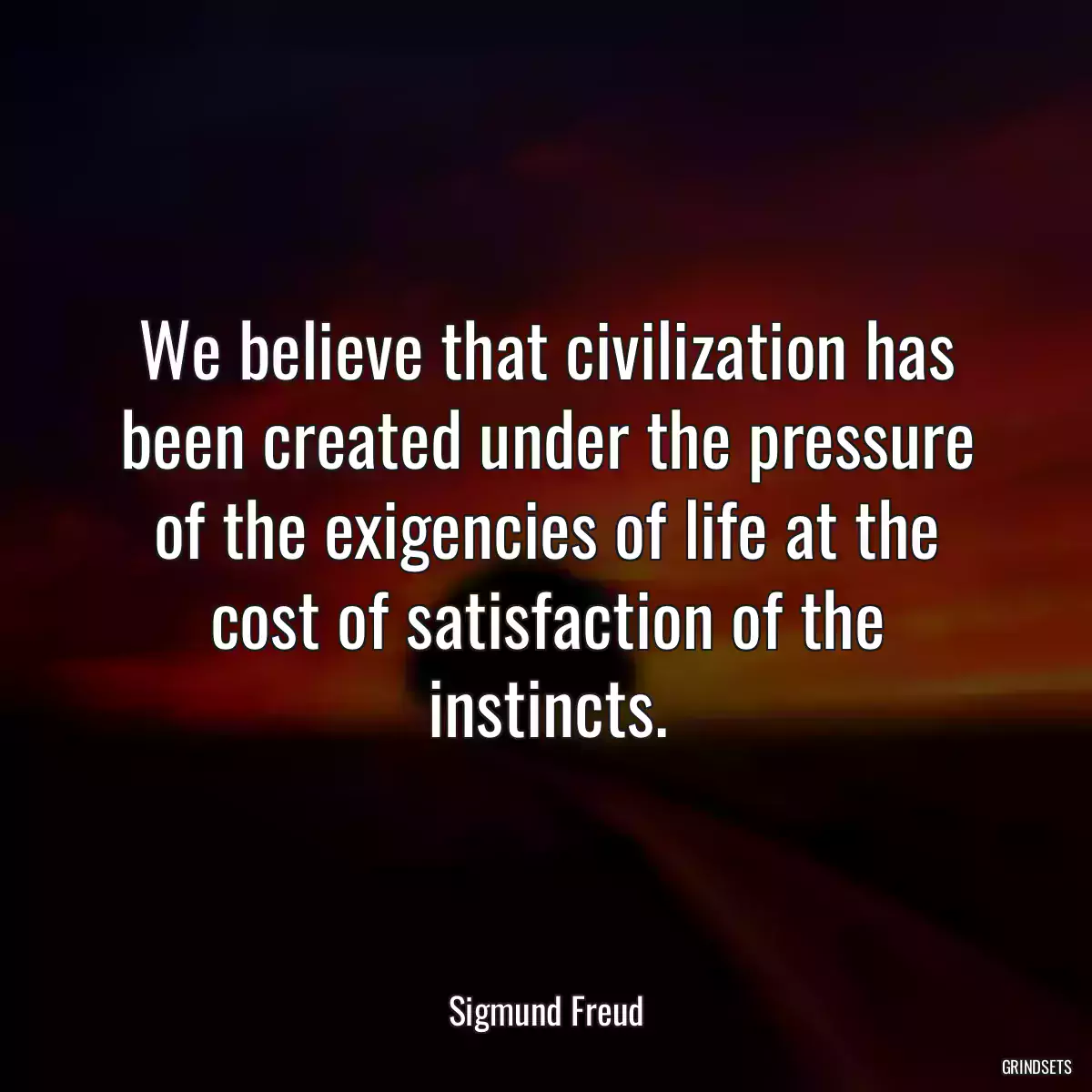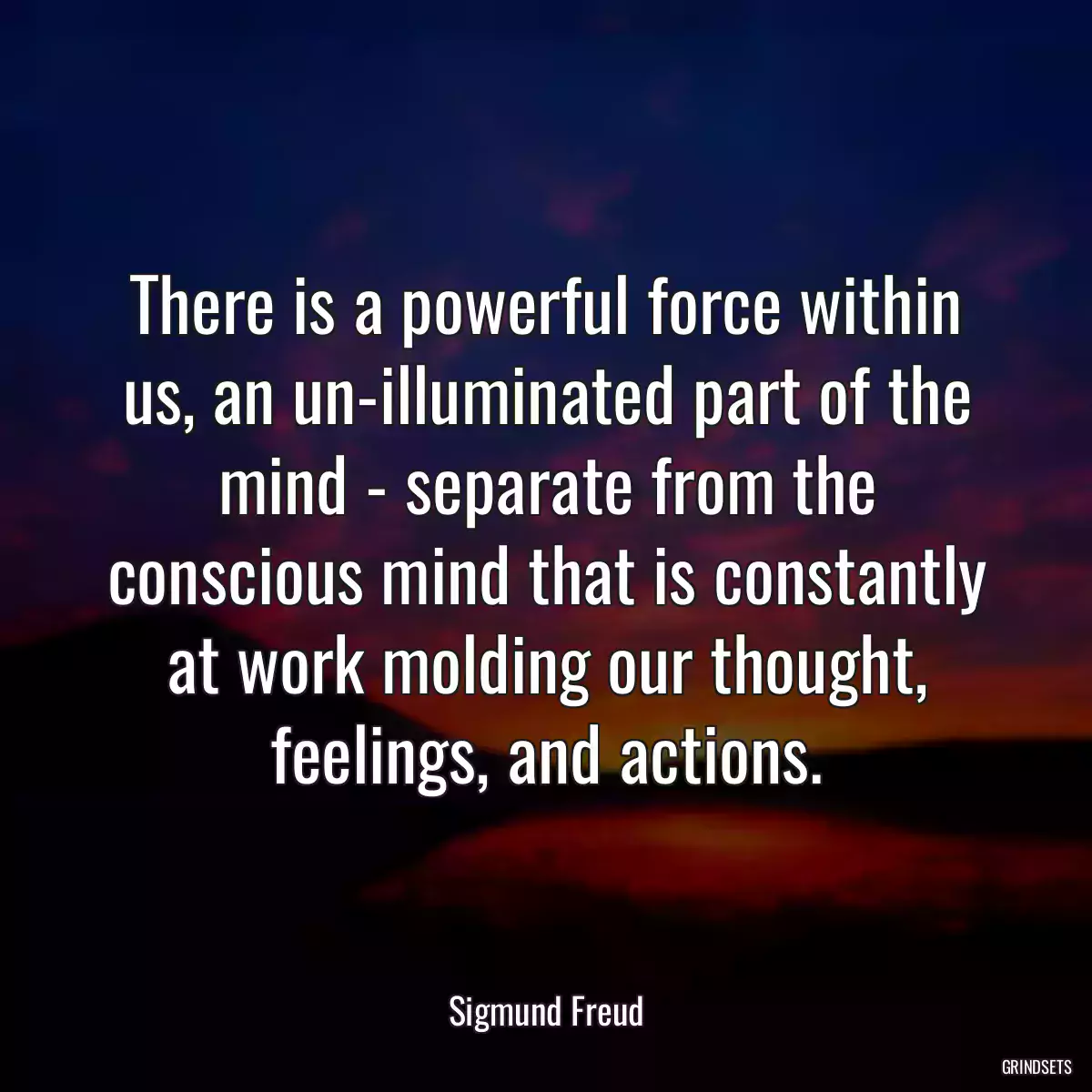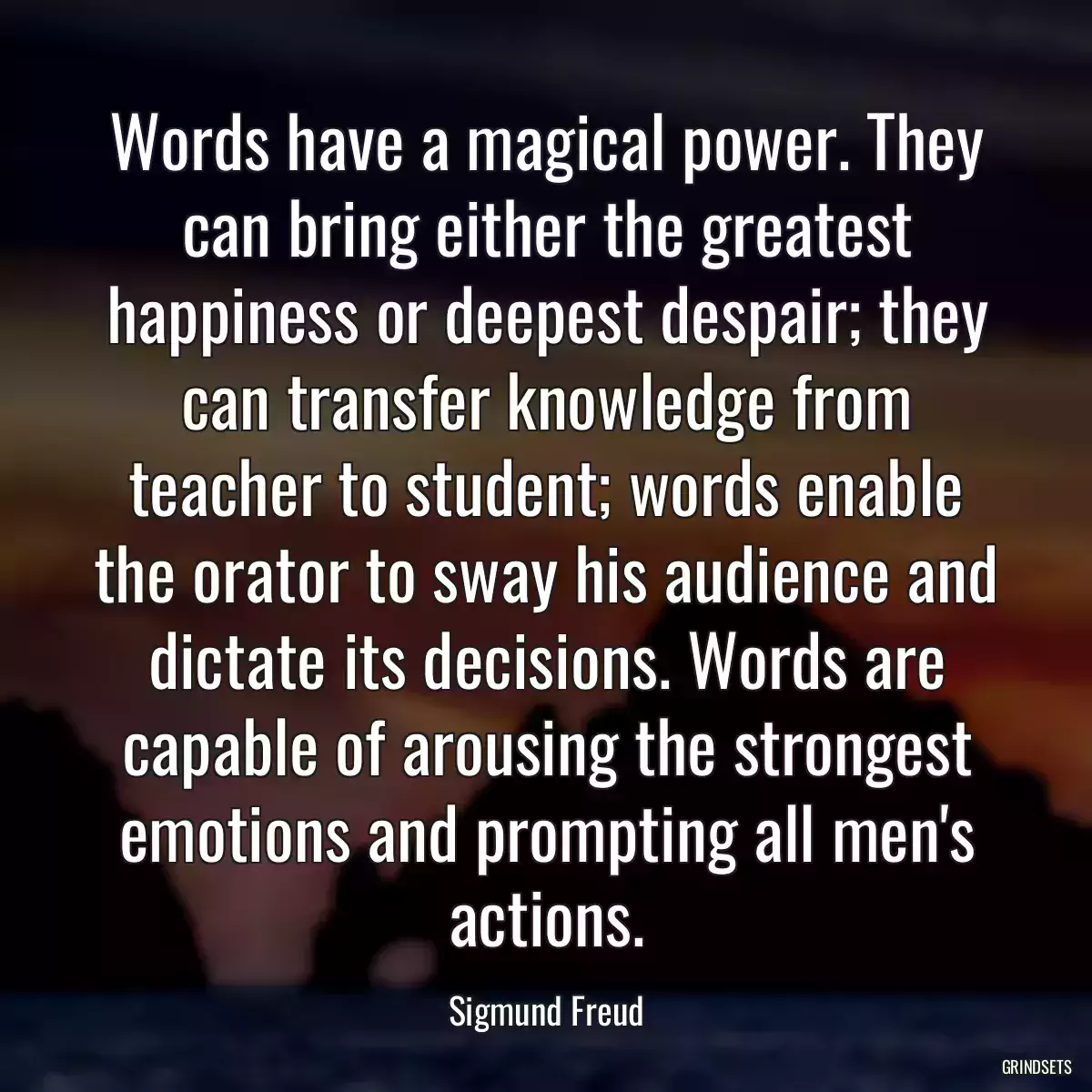
Quotes Sigmund Freud - page 4
Find dozens of Sigmund Freud with images to copy and share.

Life, as we find it, is too hard for us; it brings us too many pains, disappointments and impossible tasks. In order to bear it we cannot dispense with palliative measures... There are perhaps three such measures: powerful deflections, which cause us to make light of our misery; substitutive satisfactions, which diminish it; and intoxicating substances, which make us insensible to it.
No one who has seen a baby sinking back satiated from the breast and falling asleep with flushed cheeks and a blissful smile can escape the reflection that this picture persists as a prototype of the expression of sexual satisfaction in later life.
We must reckon with the possibility that something in the nature of the sexual instinct itself is unfavorable to the realization of complete satisfaction.
You may also like
It would be one of the greatest triumphs of humanity, one of the most tangible liberations from the constraints of nature to which mankind is subject, if we could succeed in raising the responsible act of procreating children to the level of a deliberate and intentional activity and in freeing it from its entanglement with the necessary satisfaction of a natural need.
An unrestricted satisfaction of every need presents itself as the most enticing method of conducting one's life, but it means putting enjoyment before caution, and soon brings its own punishment.
I cannot face with comfort the idea of life without work; work and the free play of the imagination are for me the same thing, I take no pleasure in anything else.
The pleasure of satisfying a savage instinct, undomesticated by the ego, is uncomparably much more intense than the one of satisfying a tamed instinct. The reason is becoming the enemy that prevents us from a lot of possibilities of pleasure.
Most people do not really want freedom, because freedom involves responsibility, and most people are frightened of responsibility.

The unconscious - that is to say, the 'repressed' - offers no resistance whatever to the efforts of the treatment. Indeed, it itself has no other endeavour than to break through the pressure weighing down on it and force its way either to consciousness or to a discharge through some real action.
The individual does actually carry on a double existence: one designed to serve his own purposes and another as a link in a chain, in which he serves against, or at any rate without, any volition of his own.
Men are not gentle, friendly creatures wishing for love, who simply defend themselves if they are attacked, but ... a powerful measure of desire for aggression had to be reckoned as part of their instinctual endowment.
Talk therapy turns hysterical misery to mundane unhappiness.
We are never so defensless against suffering as when we love.
The very emphasis of the commandment: Thou shalt not kill, makes it certain that we are descended from an endlessly long chain of generations of murderers, whose love of murder was in their blood as it is perhaps also in ours.
Love can not be much younger than the lust for murder.
Every man has a right over his own life and war destroys lives that were full of promise; it forces the individual into situations that shame his manhood, obliging him to murder fellow men, against his will.
You may also like

Words have a magical power. They can bring either the greatest happiness or deepest despair; they can transfer knowledge from teacher to student; words enable the orator to sway his audience and dictate its decisions. Words are capable of arousing the strongest emotions and prompting all men's actions.